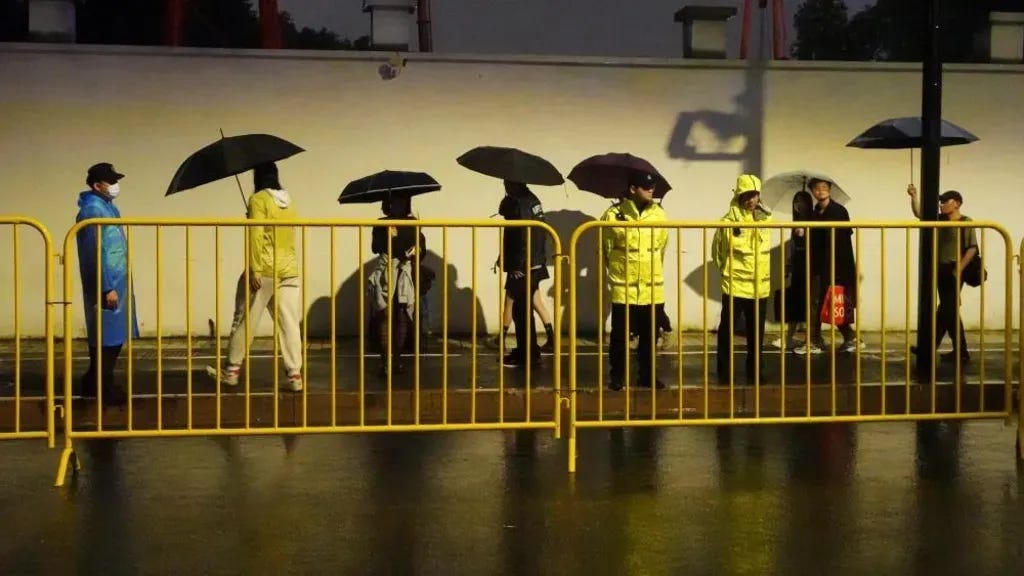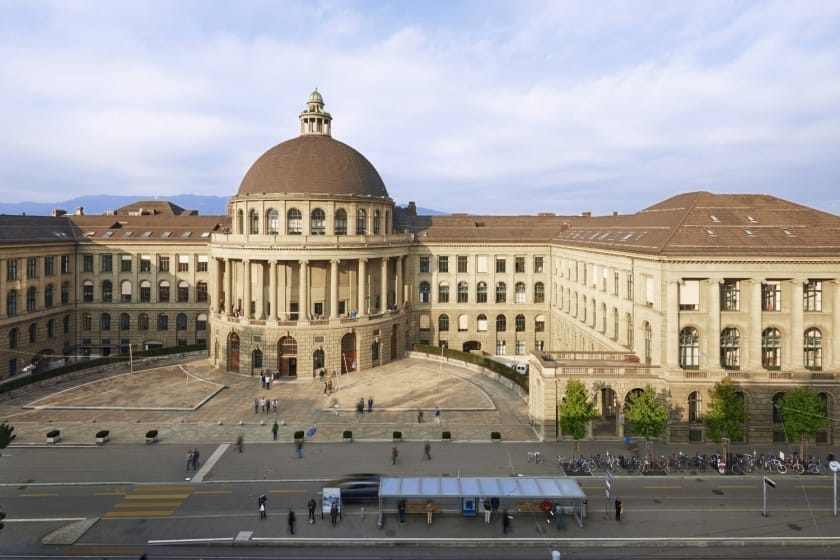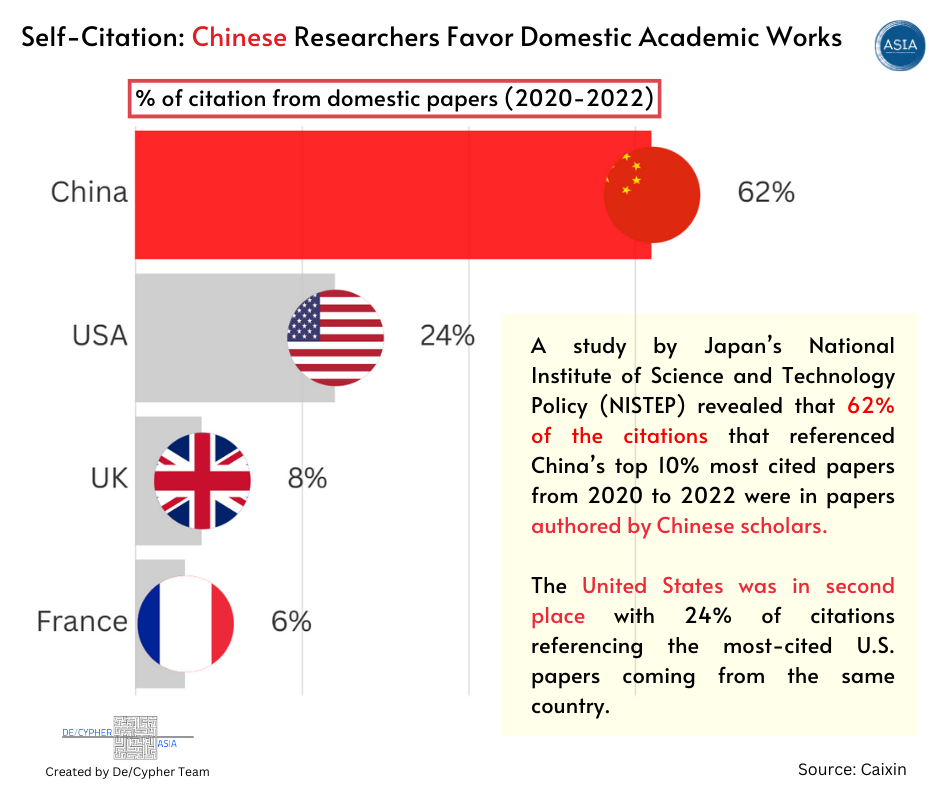This Week in Beyond the Great Wall: Balancing Domestic Challenges and Global Ambitions
This week’s Beyond the Great Wall examines China's bold fiscal plans, renewable energy strides, and tech ambitions, alongside Xi Jinping’s reform agenda, anti-corruption efforts, and complex diplomacy with the West and regional players.
China Quote✒️
“Officials should be fearful in their hearts, careful with their words, and restrained in their actions” -Gao Xiang, President of the Chinese Academy of Social Sciences, and member of the 20th Central Committee of the Chinese Communist Party
Blindspot👁️
Economic Activity🏦
China's Economic Crossroads Will Need More Than Stimulus, They Will Need Xi to Change Philosophy
SIGNAL: Strong ideological headwinds are shaping China's economic response under Xi Jinping, marking the most doctrinally-driven period since Deng's opening reforms. The continued battering of the economy has led to some changes in consumption enabled growth but it might not be enough.
NOISE: Economist call for consumer stimulus packages and social welfare expansion. Stimulus expansion is happening but welfarism is not on the cards.
CONTEXT: A faltering economy (manufacturing down, exports declining, deflation emerging) meets rigid ideological resistance to Western-style solutions.
KEY PATTERN: Leadership consistently chooses state-controlled industrial investment over consumer-led growth despite diminishing returns.
DEEPER CURRENT: Xi's personal philosophy, shaped by Cultural Revolution experiences, views austerity as virtue and Western consumption models as wasteful.
HIDDEN RISK: The ideology-over-pragmatism approach could lock China into a prolonged slowdown, transforming from a global growth engine to an economic drag.
ACTIONABLE INSIGHT: Expect continued preference for infrastructure and strategic sector investment over consumer stimulus, regardless of economic indicators. (Chathamhouse, Atlantic Council)
China Considers Over $1.4 Trillion in Extra Debt Over Next Few Years
Reuters reports that China plans to issue over 10 trillion yuan ($1.4 trillion) in debt in the coming years to stabilise its economy. The fiscal package, set to be approved by the National People's Congress in early November, aims to address local government debt and support infrastructure. The plan could be expanded if Donald Trump wins the U.S. election, given anticipated economic headwinds.
China’s Investment Lead on Solar, Wind ‘May Fade Entirely’ by 2027
Caixin reports that China’s annual investments in wind and solar power have outpaced the rest of the world’s due to a strong government push, but its lead is narrowing as other countries boost spending on the industry, according to a report by Rystad Energy, a Norway-based think tank.
The investment gap between China and other major economies is projected to shrink by the end of this year and “may fade entirely by 2027,” Rystad said in an analysis last month. The likes of the U.S., European Union nations and India have upped their game in response to the “competitive pressure” brought by Beijing’s dominance in renewable energy supply chains, according to the analysis.
Shipping Companies raise freight rates
Caixin reports that several global giants have raised their November sea freight rates from China in a sign that the months-long slide in shipping prices might be coming to an end. The Shanghai Export Containerized Freight Index (SCFI) rose 6% week-over-week on Oct. 25, halting a downward trend that began in early July.
Overseas Exhibitors to Make Up 32% of Participants at China's 2nd International Supply Chain Expo
CGTN reports that the second China International Supply Chain Expo (CISCE) in Beijing, from 26-30 November, will host over 600 companies, marking a 20% increase from last year. Covering 120,000 square metres, the event aims to boost global industrial cooperation. Overseas exhibitors, led by U.S. companies, will comprise 32% of participants. CCPIT criticises recent Western economic restrictions, advocating WTO-compliant collaboration.
Inside China🐉
Xi Stresses Advancing Reform at Study Session for Senior Officials
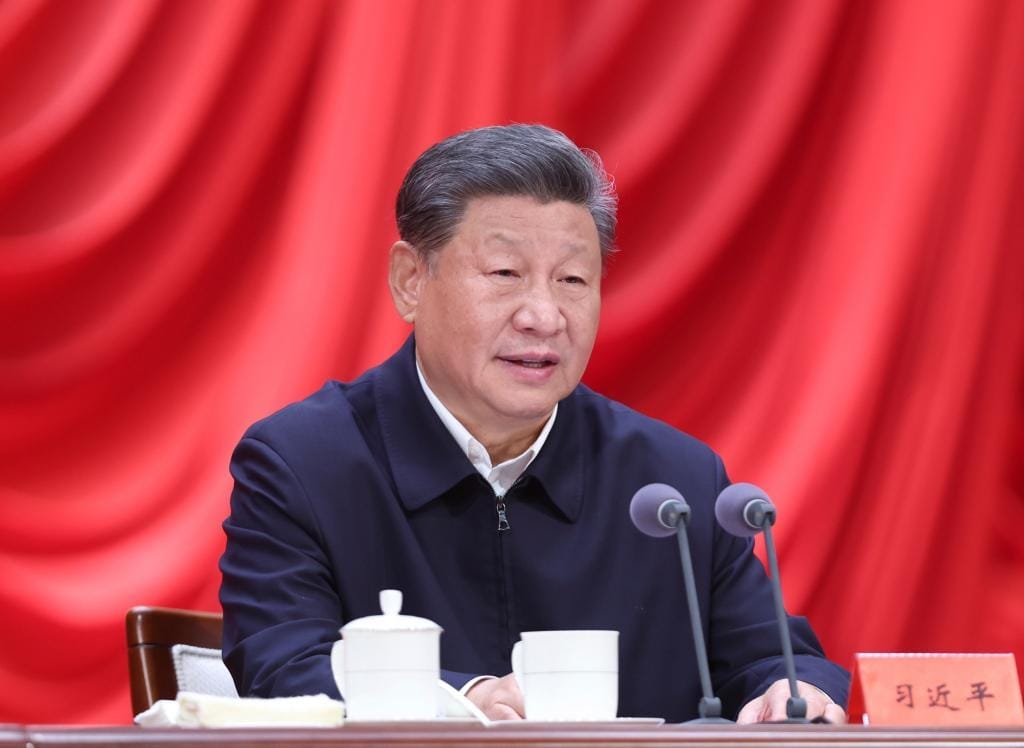
Xinhua reports that Chinese President Xi Jinping, addressing a Party school session for senior officials, urged comprehensive and sustained reform guided by principles set at the third plenary session of the 20th CPC Central Committee. Xi emphasised the importance of Marxism, socialism with Chinese characteristics, and people's democratic dictatorship while underscoring the alignment of reform with the rule of law to foster social equity.
China Punished 589,000 People for Graft in Nine Months
Bloomberg reports that China's anti-corruption agency disciplined 589,000 individuals for violations, including bribery, in the first nine months of 2024. Among them were 53 ministerial-level officials, and 2,972 cases were sent for prosecution. This campaign, focused on the finance sector, has marked two consecutive years of record senior-level investigations, introducing a financial corruption oversight committee for sustained regulation.
China’s Kindergarten Numbers Shrink as Policymakers Struggle to Arrest Falling Birthrate
Amy Hawkins writes in The Guardian that the number of kindergartens in China fell over 5% in 2023, marking the second consecutive year of decline due to a falling birthrate. Enrolment dropped by over 11%, while some kindergartens are converting to elderly care centres. Incentives, like subsidies and bonuses, have had limited success in reversing the trend. China’s birthrate hit a historic low, with broader policy interventions suggested.
A Knife Attack Near a School in Beijing Injures 5 People, Including 3 Children
AP News reports that a knife attack near a primary school in Beijing's Haidian district injured five people, including three children, on 28 October 2024. Police detained a 50-year-old suspect, surnamed Tang, and confirmed that the injuries are not life-threatening. Recent incidents have seen multiple knife attacks targeting school children across China.
Chinese Police Target Halloween Revellers in Shanghai
Eunice Yang and Gavin Butler write in BBC that police in Shanghai clamped down on Halloween celebrations, dispersing crowds and arresting costumed revellers. Witnesses reported police presence at key spots, blocking gatherings amid rumours of a potential ban on festivities. Some business owners were advised against holding events, while universities warned students to avoid public gatherings. The crackdown follows concerns about large gatherings, particularly after last year's satirical costumes mocking government policies.
Founder of TikTok Owner ByteDance Jumps to Top of China's Rich List
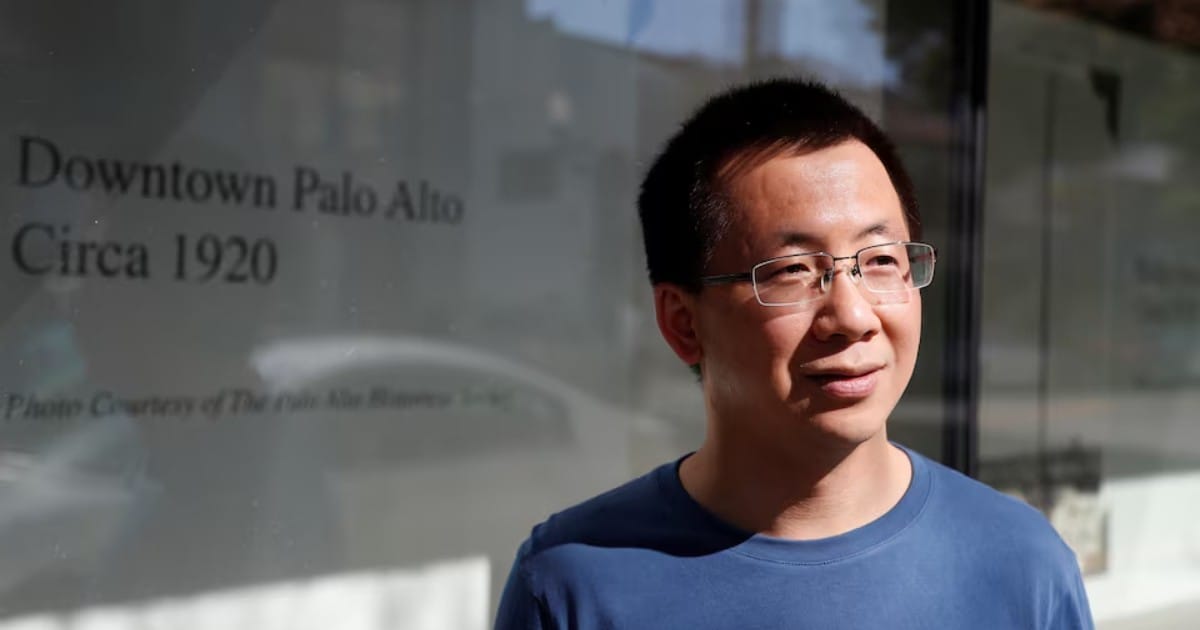
AsiaOne reports that ByteDance founder Zhang Yiming has topped China's rich list with a personal fortune of US$49.3 billion. Despite stepping down as CEO in 2021, Zhang's wealth grew due to ByteDance's 30% revenue increase last year. In U.S. dollar terms, the number of billionaires in the country shrank by nearly 16% to 753 individuals in 2024. China has lost just over one-third of its billionaires since the number peaked in 2021 at 1,185. And China’s fewer billionaires had fewer billions. The total combined wealth of the people on the list fell 10% from 2023 to $3 trillion.
Pharma giant AstraZeneca says its China chief under investigation
Muhammed Yasin Gungor writes in Anadolu Agency that AstraZeneca has confirmed its China President, Leon Wang, is under investigation by Chinese authorities. This probe follows the recent detention of former executive Eva Yin and the questioning of five other AstraZeneca employees, signalling increasing scrutiny of the company’s Chinese operations. AstraZeneca has pledged full cooperation, while operations continue under General Manager Michael Lai.
China and the World🌏
China's Xi Pressed Biden to Alter Language on Taiwan
Trevor Hunnicutt, Laurie Chen, and Yimou Lee write in Reuters that Chinese President Xi Jinping urged U.S. President Joe Biden to change the language regarding Taiwan’s status during their 2023 meeting. Xi requested the U.S. to state it "opposes" Taiwan's independence rather than "does not support" it. The Biden administration refused, maintaining its stance on strategic ambiguity. Taiwan was briefed about the exchanges.
North Korea Joining Putin’s War in Ukraine Gives Xi a Headache
Soo-Hyang Choi writes in Bloomberg that while President Xi Jinping supports Russia in pushing back against the US, Beijing has largely complied with American sanctions and requests to avoid direct military support.
China has stayed quiet on North Korea’s deployment to Russia, a sign it’s not happy with Kim adding more risks to the geopolitical landscape just as the Communist Party struggles to revive its domestic economy. As much as Beijing opposes the US imposing its views on the world, it equally doesn’t like getting pushed into a corner by a smaller neighbour.
Xi Encourages More China-Finland Cooperation in Emerging Industries
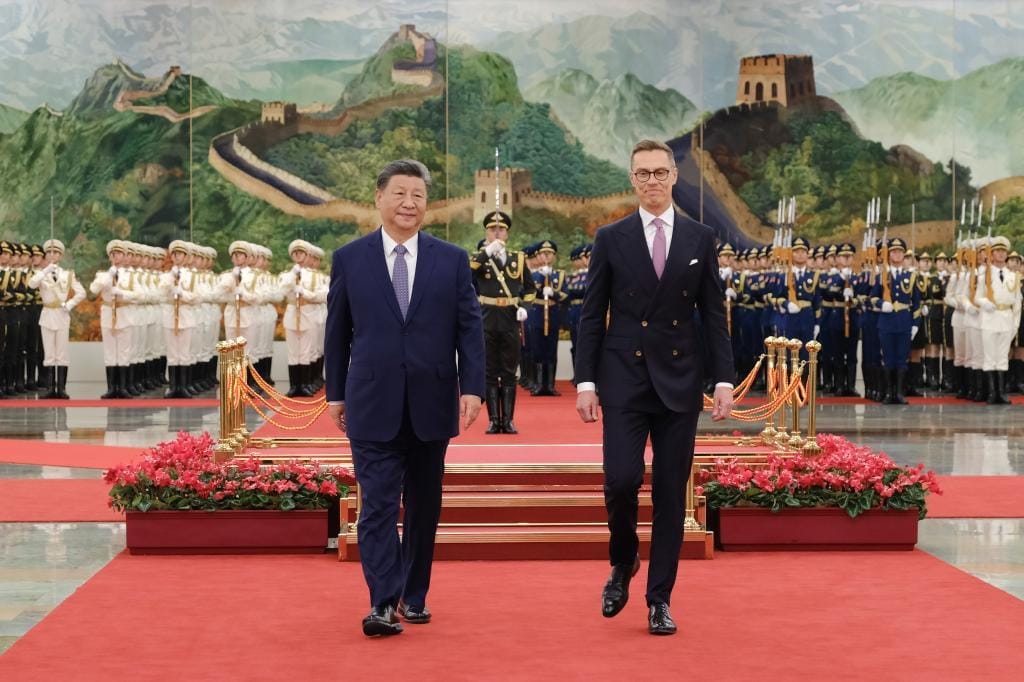
Xinhua reports that Chinese President Xi Jinping, during talks with Finnish President Alexander Stubb in Beijing, called for enhanced cooperation in green transformation, digital economy, AI, and new energy. Xi highlighted Finland’s role in China-EU relations and proposed a new visa-free policy to boost people-to-people exchanges. Both leaders also discussed global issues, including Ukraine and the Israel-Palestine conflict.
Russian Deputy Foreign Minister met with Chinese Foreign Minister in Beijing
TASS reports that Russian Deputy Foreign Minister Andrey Rudenko met with Chinese Foreign Minister Wang Yi in Beijing, discussing the comprehensive strategic partnership between the two nations. Wang emphasised the importance of maintaining close strategic dialogue across various levels. Rudenko conveyed Sergey Lavrov’s best wishes to Wang, acknowledging their frequent engagements this year and hoping for continued interactions.
China Warns of Deep-Sea Spying Devices, Underwater 'Lighthouses' That Guide Foreign Submarines
Joe Cash writes in Reuters that China's Ministry of State Security has discovered spying devices on the ocean floor, including "lighthouses" guiding foreign submarines. These devices are believed to support potential battle setups in contested waters. The discovery follows tensions in the South China Sea, where recent confrontations have heightened risks involving the U.S., China, and the Philippines. Beijing aims to bolster maritime security amid intensifying submarine arms races.
European universities increase restrictions on Chinese Students
Caixin reports that more restrictions on Chinese Students One of the world’s top science and technology institutes has announced additional security review measures for graduate students. The Swiss Federal Institute of Technology Zurich’s new measures have added fuel to the debate about whether Chinese applicants in the science, technology, engineering, and mathematics fields are being treated unfairly by European universities. Schools across Europe have grown increasingly vigilant about unwanted transfers of sensitive knowledge and technology in recent years. Many have instituted security screenings that have delayed or in some cases scuttled the admission of Chinese students.
China Hacked Phones of Donald Trump’s Family, Says FBI
Cameron Henderson writes in The Telegraph that China-linked hackers allegedly accessed personal phone data of Donald Trump’s family members and associates, including Eric Trump and Jared Kushner, ahead of the 2024 election. FBI investigators suspect that over 100 individuals were targeted, including Kamala Harris’s campaign staff and government officials. The breach involved telecom systems, with a group called Salt Typhoon believed to be responsible.
South Korean National Arrested in China on Suspicion of Espionage
Zhao Ziwen writes in SCMP that a South Korean man has been arrested in China under suspicion of spying. Working for a semiconductor firm in Hefei, he was detained last December, allegedly for leaking semiconductor-related information. The case, occurring under China’s expanded anti-espionage law, marks the first involving a South Korean national since the law’s revision.
North Korea satellite images show mystery trenches dug at border
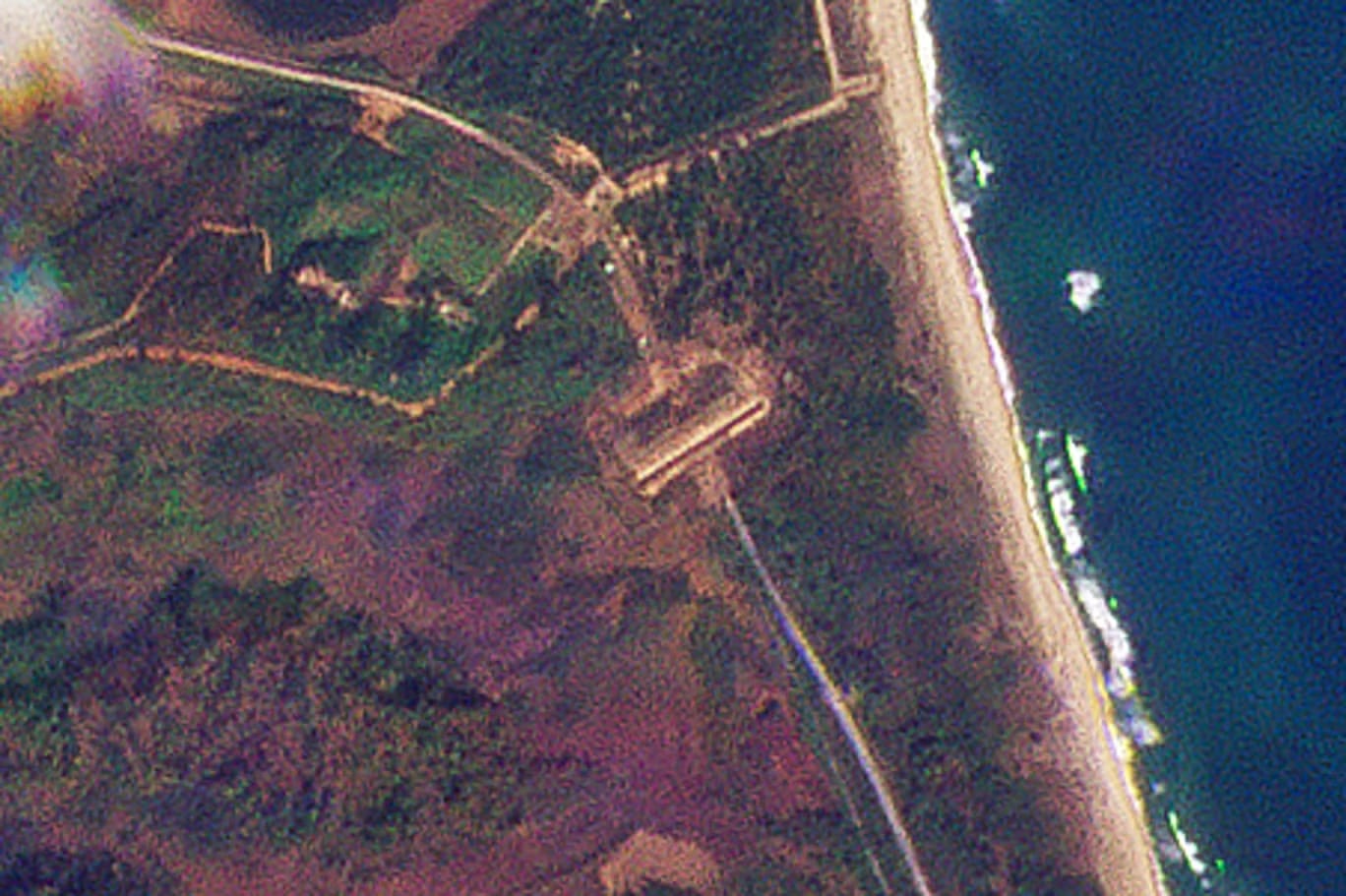
Kim Tong-Hyung writes in The Independent that recent satellite images reveal North Korea has excavated large trenches across key roads and railways along the Demilitarized Zone with South Korea. Analysts note these trenches, possibly aimed at severing transportation links, appeared after recent cross-border route demolitions by North Korea. The action coincides with heightened tensions, as North Korea intensifies its missile programme and support for Russia.
Tech in China🖥️
China declares success as its youngest astronauts reach space
Laura Bicker writes in BBC that China’s Shenzhou 19 spacecraft successfully docked with its space station, carrying a three-member crew, including the nation’s first female space engineer. This mission marks one of China’s 100 launches planned for the year as it advances towards a lunar mission by 2030. The crew, described as the “youngest” yet, will conduct experiments and spacewalks during a six-month stay, symbolising China’s growing ambitions in the space race with the US.
French Nobel-Winning Laser Scientist Joins China’s Top Institute; Could Play Key Role To Meet Beijing’s Ambitions
Ashish Dangwal writes in EurAsian Times that French Nobel laureate Gérard Mourou has taken a chair professorship at Peking University, signalling China's ongoing efforts to attract global scientific talent. Mourou, a laser physics pioneer, will help establish a research institute at the university, enhancing collaborations in laser, particle, and medical physics. Beijing’s success in recruiting experts like Mourou reflects its drive to become a global leader in science and technology.
China’s Deep Blue Aerospace Reveals Suborbital Tourism Plans
Andrew Jones writes in SpaceNews that Chinese startup Deep Blue Aerospace aims to launch suborbital tourism flights by 2027. The company will conduct extensive tests of its Nebula-1 rocket in 2025-2026 to ensure safety. Passengers will experience 600 seconds of microgravity during flights reaching altitudes of 100-150 km. The presale of the first tickets, priced at 1.5 million yuan ($210,000), began on Taobao on 24 October.
Intel Unveils Additional Investment in China to Boost Local Supply Chain
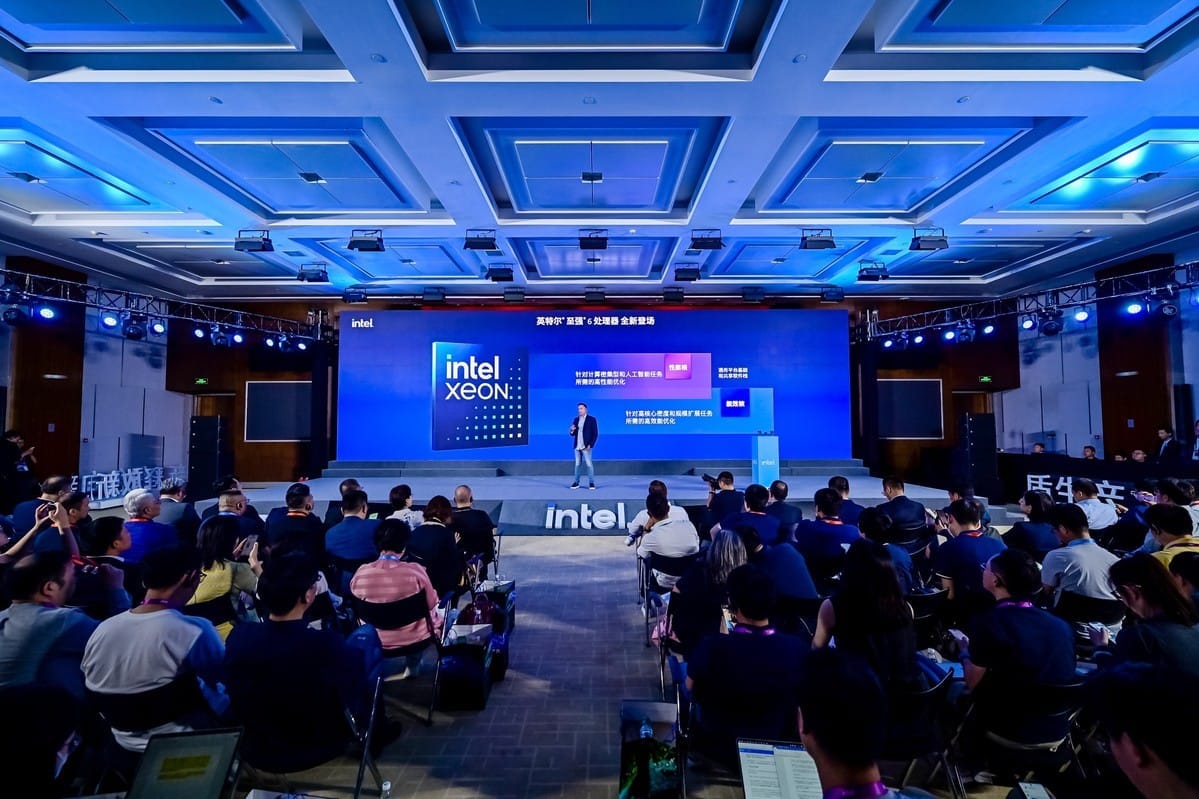
China Daily reports that Intel has expanded its packaging and testing base in Chengdu, China, with a $300 million investment to enhance supply chain efficiency and support local clients. This move reflects Intel's long-term strategy in China, despite US trade restrictions. Nearly a quarter of Intel's global revenue comes from China, underscoring its market importance.
De/Cypher Data Dive📊
China produced 118,500 “high-level international journal papers” in 2023, which accounted for 33.6% of the total worldwide. (Caixin)
Nearly two-thirds of the citations for China's most-cited papers in recent years come from domestic papers, indicating that Chinese researchers are more likely than their international counterparts to cite academic works created in their own nation.
The research conducted by Ludwig Maximilian University of Munich found that 57% of citations for Chinese papers published in the top 10% of academic publications between 2000 and 2021 came from within the country. The U.S. ranked second at 37%.
Image of the Week📸

---




